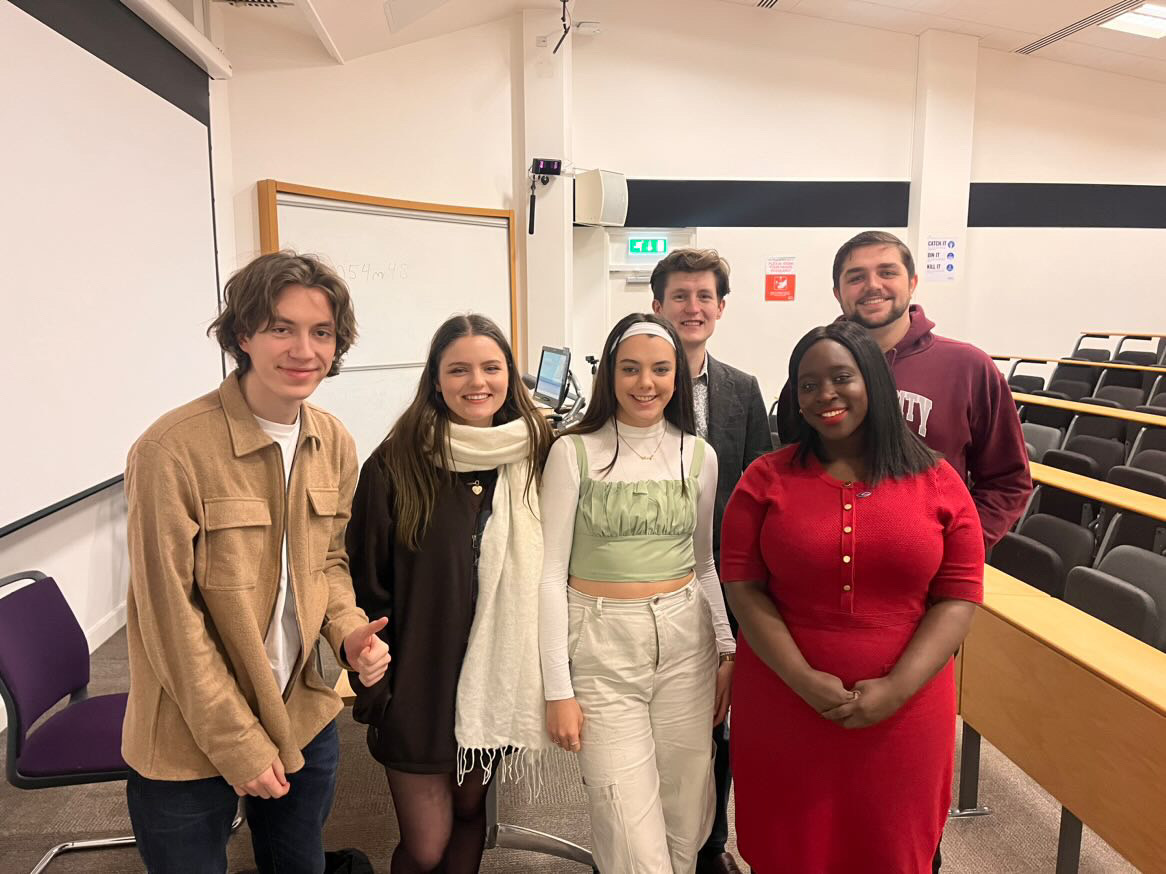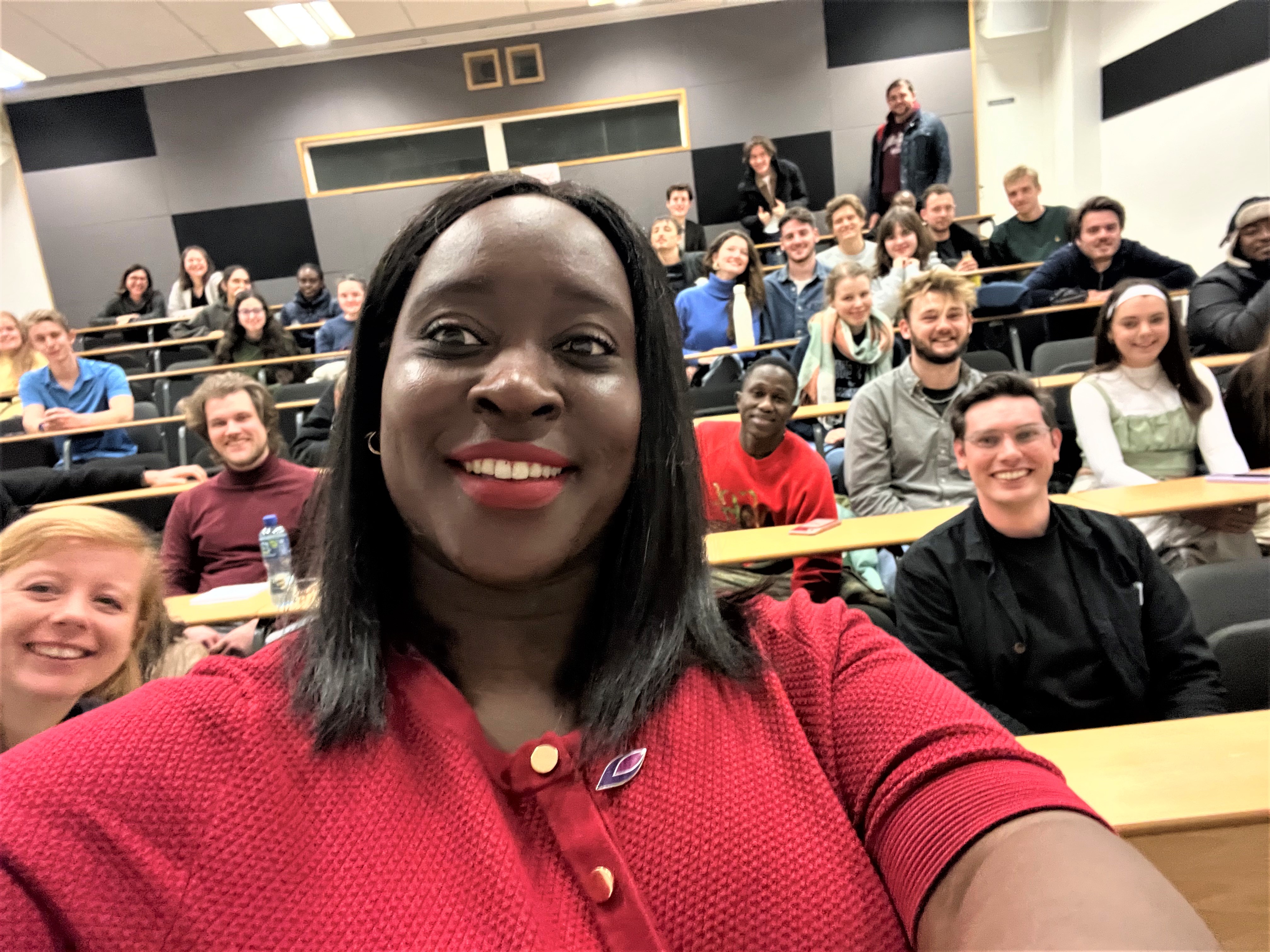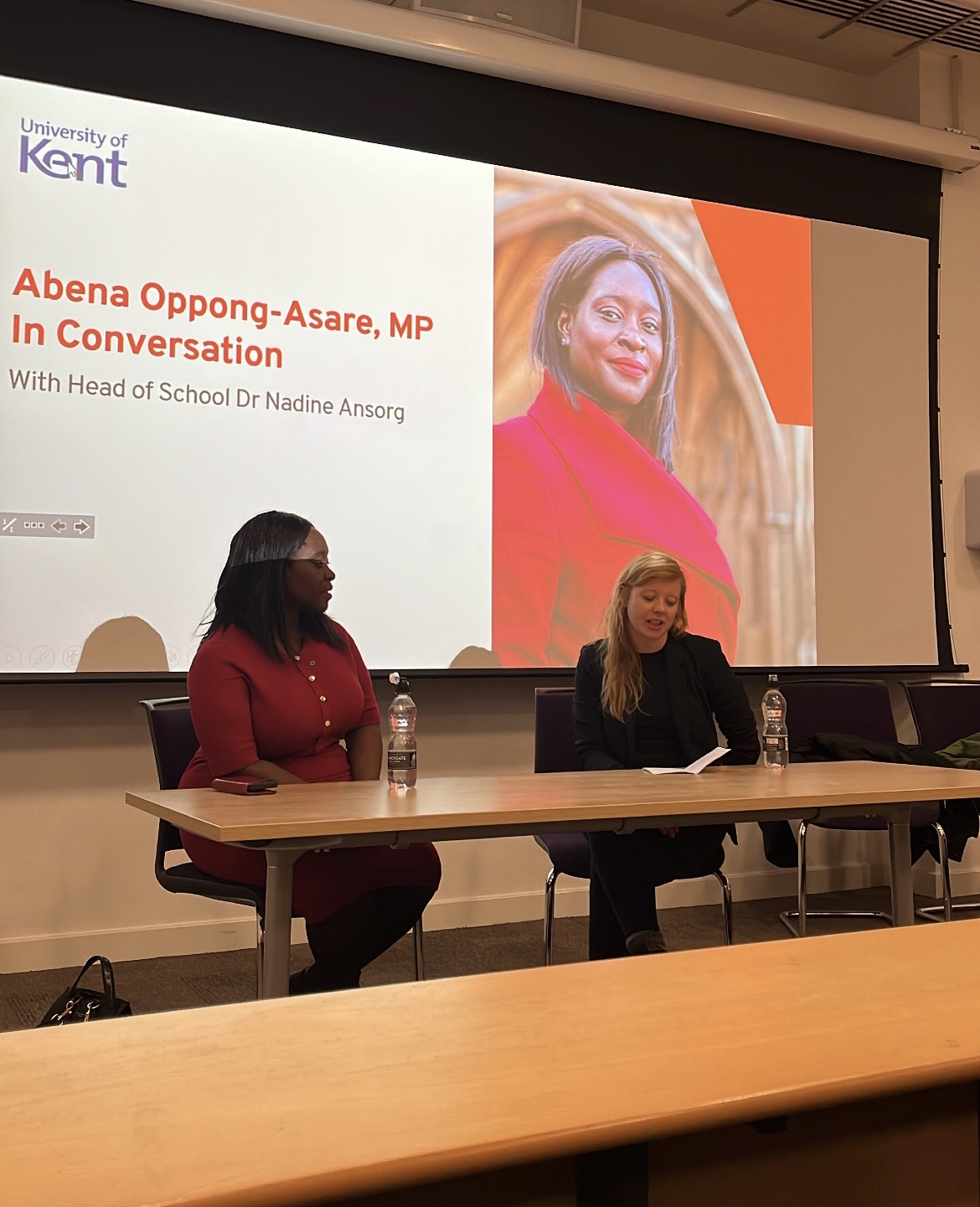On the 27th of January, the School of Politics and International Relations welcomed Abena Oppong-Asare to discuss her work and her view on today’s politics. The School of Politics alumna is known for her social advocacy, particularly focusing on the political engagement of those marginalised in society. She is the Labour MP for Erith and Thamesmead, Shadow Exchequer Secretary for the Treasury and Chair of the Labour Women’s Network. Head of the School, Dr Nadine Ansorg, asked a set of questions, followed by a Q&A with those in attendance.
Whilst a student here, Oppong-Asare wasn’t imagining a career in politics, but was interested in the field of International conflict. When trying to break into this field, however she experienced obstacles; a lot of the programmes offered to graduates are overseas and require substantial financial investment. Instead, she went down the parliamentary route, doing work experience with Valerie Amos, the first black leader of the House of Lords. She also worked for Diane Abbott, the first female black MP, which Abena said opened her eyes and got her hooked on the political world. Building on this point, she suggested that people who have their eye set on becoming an MP, need to go out into the world and engage with the electorate prior to going into politics. Summarising her argument with a piece of advice, Abena noted the importance of these qualities “being open-minded and gaining life experiences”.

Oppong-Asare recalled the process of her election to the constituency of Erith and Thamesmead in 2019. She was persuaded to stand for her home seat at a very busy time in her life but acted on the belief that “you have to grab these opportunities when you can”. She had a week to speak to all 600 members of the local Labour party for her campaign and set out a few key areas of interest in the area. After the hustings and voting process, she was elected as the Labour candidate for the constituency, but remained unsure about her chances, seeing as the constituency had voted Leave in the Brexit referendum. She embarked on a campaign in winter, a season which traditionally sees lower turnout. Abena went on to explain that this was compounded by the fact that constituents felt Labour was not clear on its position towards Brexit and that the atmosphere felt quite “toxic”. Despite these factors, Abena still won, recalling that she experienced “a bit of a culture shock” upon entering Westminster politics, as the Labour party was going through a leadership election. She went on to note that the atmosphere within the party has since improved.
Ansorg asked Oppong-Asare if there was anything enjoyable about the beginning of her period as an MP, to which she responded that she experienced a lot of difficulty both in her constituency and in Parliament. She recalled the discrimination that women and children in her constituency experienced in the government’s handling of the pandemic, citing a lack of consideration for people who were disproportionately impacted due to falling into one or more categories of a ‘protected characteristic’ as detailed in her report ‘Leaving Nobody Behind In Erith and Thamesmead’, which provided data on how COVID-19 from her constituency. The report was covered heavily in the media, and some of its recommendations were taken up by the government.
‘Entering Westminster politics was a bit of a culture shock.’
When asked about her summer school programme, Oppong-Asare explained that she felt a lot of young people were disengaged from the realm of campaigning and politics, which is why she set up a way for young people to become involved. Oppong-Asare said she feels that constituents under 18 do not get consulted enough because they do not have the vote yet. Using the example of the lockdown restrictions, she did not think the voices of school children were being represented in government discussions about its effect. Oppong-Asare hopes her summer school will “empower young people to be the change they want to see in the world”. So far, Oppong-Asare’s programme has organised workshops from Laura Coryton, founder of the Tampon Tax campaign, as well as employees from Facebook and LinkedIn.
On discrimination in politics, Oppong-Asare recounted her experience of being redirected to the visitors’ entrance at Parliament, or instances where people would speak to her white counterparts, but not to her. Oppong-Asare noted the importance of asserting yourself, and that she does not let it phase her, arguing “I knew what I was getting into”. Calling for the importance of allies in the political sphere, Oppong-Asare explained that she expects her white counterparts to call out such behaviour if they see it happen. Furthering her point, she argues people are more comfortable talking about gender than they are talking about race. She feels that everyone should have the same level of equality, and lives by the motto “when I see injustice, I turn anger into action”.
Oppong-Asare was then asked about the process of making her way up the political ladder as a woman of colour, and whether she encountered any difficulties, with or without the help of schemes such as her own summer school. In response, she mentioned her experience with the Fabian Women’s Network, and recalled telling them she specifically did not want to be mentored by someone in politics. The mentoring she received there helped her build confidence and belief in her own abilities. On the Labour Women’s Network, Oppong-Asare says it has been one of her priorities as chair to diversify the committee, requiring one of four people elected to the committee yearly to be of a BAME background. Now, more than 50% of the committee has a BAME background.
‘You have to grab these opportunities when you can.’
On the current political culture in Westminster, Abena noted that despite the fact that she loves her job, certain events can have a depressing impact, such as the recent passing of the government’s ‘anti-strike’ bill. She went on to mention the National Infrastructure Bank bill, for which she sat on the committee. When Oppong-Asare entered politics, these bill committees took a few weeks before the bill would go through, but this bill, as with many other bills brought in by this government, went through within a day. Criticising a lack of urgency, Oppong-Asare expressed her dismay at the fact that the review of this bill will only take place every seven years, down from the ten years review period suggested by the government. Sadly, Oppong-Asare argued, bills such as these do not amount to “sexy politics”, meaning journalists do not cover bills that affect the British public in significant ways.
It was an inspiring experience listening to this Kent alumnus speak about her achievements and engaging with her about the politics of today. Her stellar career path as a social advocate will have given many students food for thought in embarking on a life post-university.
See Abena Oppong-Asare document her visit with a Tik Tok here.


